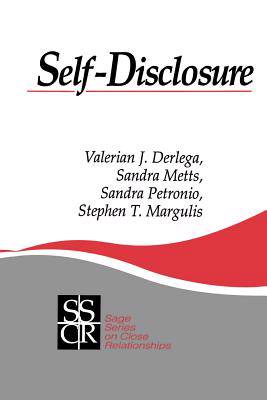
- Afhalen na 1 uur in een winkel met voorraad
- Gratis thuislevering in België vanaf € 30
- Ruim aanbod met 7 miljoen producten
- Afhalen na 1 uur in een winkel met voorraad
- Gratis thuislevering in België vanaf € 30
- Ruim aanbod met 7 miljoen producten
Zoeken
Omschrijving
Although self-disclosure is not equivalent to and does not define the level of intimacy in a relationship, it is a major factor in the relationship′s development, maintenance, and deterioration. Conversely, the level of closeness between relationship partners (whether the individuals are acquaintances, friends, lovers, or relatives) affects the meaning and impact of disclosure. Compelling and informative, Self-Disclosure focuses on the role of self-disclosure in close relationships and illustrates how individuals negotiate with their relationship partners--what, when, where, and how they communicate personal feelings and thoughts. The authors examine how close relationships and self-disclosure are mutually transformative; where self-disclosure and relationships mutually interact to affect one another; how subcultural differences between males and females influence self-disclosure in relationships; how the vulnerability and risk associated with disclosing personal information leads relationship partners to be concerned about privacy regulation; and how stress-reducing disclosure, associated with the willingness to talk about stressful events, provides both a means of coping with unpleasant life events and access to social support. With sensitive coverage of the major themes of self-disclosure, this volume is ideally suited for students, researchers, and practitioners interested in close relationships, interpersonal communication, social psychology, gender studies, family studies, counseling and clinical psychology, social work, and sociology. "For someone looking for a good review of the literature on self-disclosure and close relationships, this book fits the bill, providing a quick and easy way to sort through theory....for the researcher, the authors provide questionnaire materials in most chapters to illustrate how data might be collected." --Families in Society
Specificaties
Betrokkenen
- Auteur(s):
- Uitgeverij:
Inhoud
- Aantal bladzijden:
- 152
- Taal:
- Engels
- Reeks:
- Reeksnummer:
- nr. 5
Eigenschappen
- Productcode (EAN):
- 9780803939554
- Verschijningsdatum:
- 1/03/1993
- Uitvoering:
- Paperback
- Formaat:
- Trade paperback (VS)
- Afmetingen:
- 155 mm x 229 mm
- Gewicht:
- 244 g

Alleen bij Standaard Boekhandel
+ 320 punten op je klantenkaart van Standaard Boekhandel
Beoordelingen
We publiceren alleen reviews die voldoen aan de voorwaarden voor reviews. Bekijk onze voorwaarden voor reviews.











